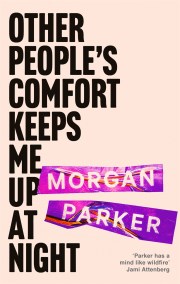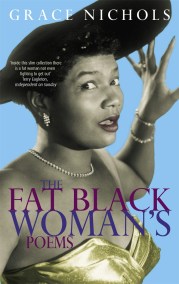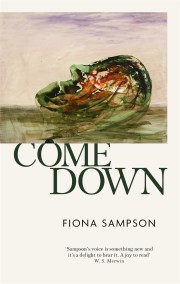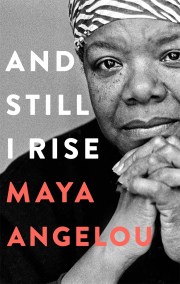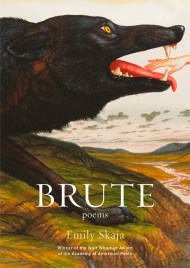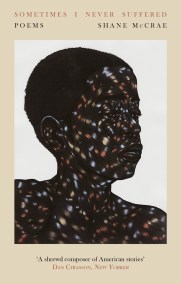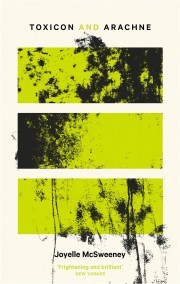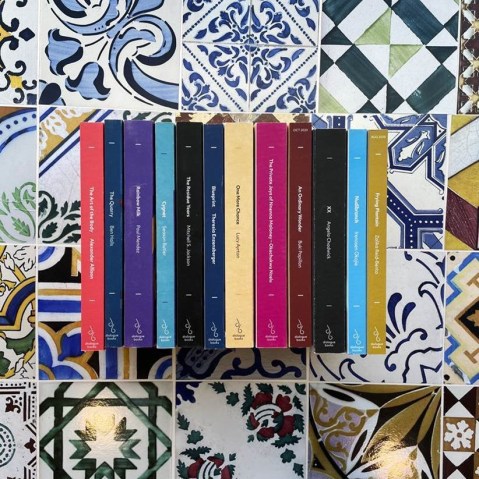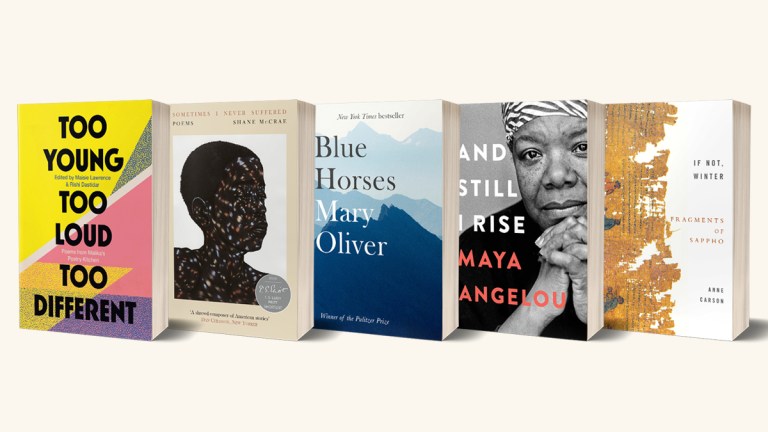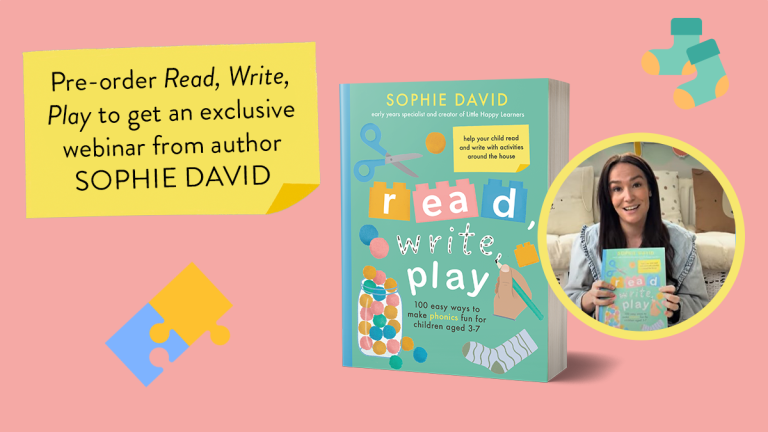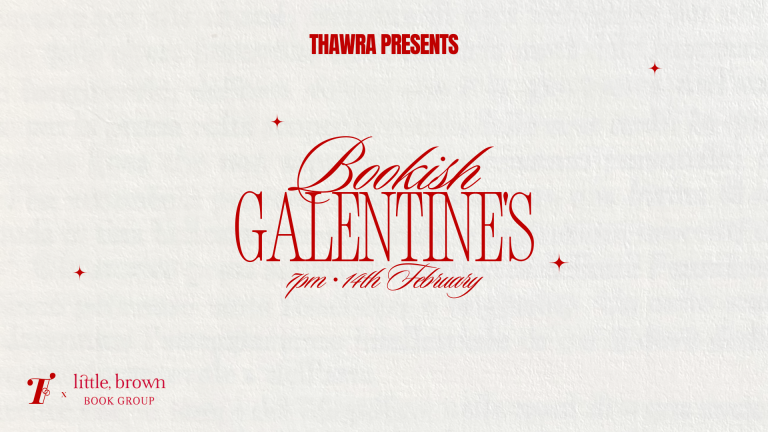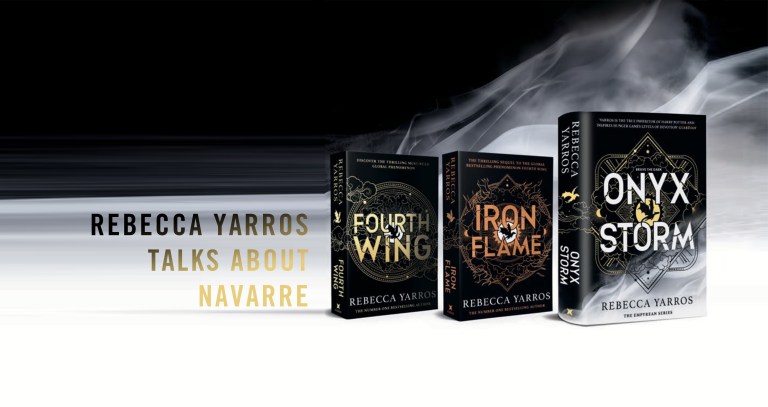Little, Brown Book Group | Our National Poetry Day Reading List
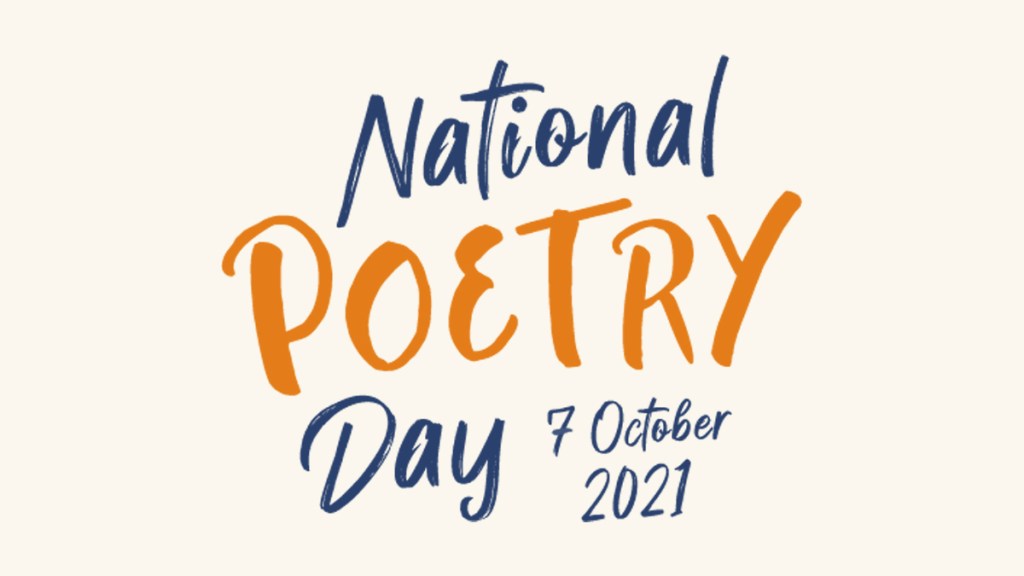
In celebration of #NationalPoetryDay, we are proud to bring to you our poetry recommendations from a range of poets across Little Brown Book Group. Whether you’re a avid fan of poetry or looking for a place to start, there is something for everyone on this list.
Too Young, Too Loud, Too Different
Edited by Maisie Lawrence
Edited by Rishi Dastidar
One of the Evening Standard's Best Non-fiction 2021.
'We knew that black and brown bodies, working class voices, women's voices, did not have a space where they could be heard - and so this writing collective was a necessary and political act'
In the early years of the new millennium, poets Malika Booker and Roger Robinson saw the need for a space for writers outside of the establishment to grow, improve, discuss and learn. One Friday night, Malika offered her Brixton kitchen table as a meeting place. And so Malika's Poetry Kitchen was born.
'Kitchen', as it became known, has ushered in a new generation of voices, launching some of the most exciting writers, books and initiatives in British poetry in the past twenty years. Today, Kitchen is a thriving writers' collective, with a wealth of talented poets and branches in Chicago and India.
Too Young, Too Loud, Too Different is a celebration of Kitchen's legacy, an appreciation of its foundational spirit and a rallying cry for all writers to dream the future. The collection features breathtaking new poems by Warsan Shire, Inua Ellams, Kayo Chingonyi, Dean Atta, Roger Robinson, Malika Booker among many others.
From the author of Magical Negro, Winner of the National Book Critic's Circle Award
'Hilarious and hard-hitting . . . it ripples with energy, insight, and searing music' Tracy K. Smith, author of Wade in the Water
Other People's Comfort Keeps Me Up at Night - the book that launched the career of one of our most important young American poets - is now in print for the first time in the UK, featuring a new introduction from Danez Smith.
The debut collection from award-winning poet Morgan Parker demonstrates why she's become one of the most beloved writers working today. Her command of language is on full display. Parker bobs and weaves between humor and pathos, grief and anxiety, Gwendolyn Brooks and Jay-Z, the New York School and reality television. She collapses any foolish distinctions between the personal and the political, the 'high' and the 'low'. Other People's Comfort Keeps Me Up at Night not only introduced an essential new voice to the world, it contains everything readers have come to love about Morgan Parker's work.
'Heather Christle's poems may well be one of the places readers turn when they want to know what it was like to be young and paying attention in the early 21st century . . . Her poems are wide awake' Mark Doty
In The Trees The Trees, each new line is a sharp turn toward joy and heartbreak, and each poem unfolds like a bat through the wild meaninglessness of the world.
The Fat Black Woman’s Poems
by Grace Nichols
A stunning collection of poems from Grace Nichols, winner of the Queen's Gold Medal for Poetry 2021
Beauty
is a fat black woman
walking the fields
pressing a breezed
hibiscus
to her cheek
while the sun lights up
her feet
Nichols gives us images that stare us straight in the eye, images of joy, challenge, accusation. Her 'fat black woman' is brash; rejoices in herself; poses awkward questions to politicians, rulers, suitors, to a white world that still turns its back. Grace Nichols writes in a language that is wonderfully vivid yet economical of the pleasures and sadnesses of memory, of loving, of 'the power to be what I am, a woman, charting my own futures'.
'Unquestionably one of our most important living poets' i-D magazine
'Not only rich music, an easy lyricism, but also grit, and earthy honesty, a willingness to be vulnerable and clean' Gwendolyn Brooks
'Beneath the folk rhythms and the lyrical simplicities, Nichols's poems preach disquiet' Observer
'Grace Nichols has wit, acidity, tenderness, any number of gifts at her disposal' Jeanette Winterson
WINNER OF THE WALES POETRY BOOK OF THE YEAR AWARD 2021
Winner of the Naim Frashëri Laureateship of Albania and Macedonia
Winner of the European Lyric Atlas Prize
'Fiona Sampson's voice is something new and it's a delight to hear it . . . A joy to read' W. S. Merwin
Questions of humanity, of point of view, are at the heart of Fiona Sampson's new collection, Come Down.
Throughout, Sampson's poems shimmer between the human perspective and what is beyond - some larger, longer-term consciousness. Language runs and dances over the stuff of the human body and the material of the landscape. And yet, despite these radical perspective shifts, the collection keeps in sight, always, the human experience: the act of creation; the way in which childhood memory and family lore impinge on the present.
Come Down ends with a long, eponymous poem, which moves fluidly and brilliantly through different forms of memory.
A beautiful and inspiring collection of poetry by Maya Angelou, author of I KNOW WHY THE CAGED BIRD SINGS and 'a brilliant writer, a fierce friend and a truly phenomenal woman' (BARACK OBAMA).
'I write about being a Black American woman, however, I am always talking about what it's like to be a human being. This is how we are, what makes us laugh, and this is how we fall and how we somehow, amazingly, stand up again' Maya Angelou
Maya Angelou's poetry - lyrical and dramatic, exuberant and playful - speaks of love, longing, partings; of Saturday night partying, and the smells and sounds of Southern cities; of freedom and shattered dreams.
'Her poetry is just as much a part of her autobiography as I Know Why the Caged Bird Sings and the volumes that follow.' Kirkus
'It is true poetry she is writing . . . it has an innate purity about it, unquenchable dignity' M. F. K. Fisher
Brute
by Emily Skaja
Selected by Joy Harjo as the winner of the Walt Whitman Award of the Academy of American Poets
'Taut, ferocious . . . This is a book about survival, and a welcome, confident debut' New York Times Book Review
Emily Skaja's debut collection is a fiery, hypnotic book that confronts the dark questions and menacing silences around gender, sexuality and violence. Brute arises, brave and furious, from the dissolution of a relationship, showing how such endings necessitate self-discovery and reinvention. The speaker of these poems is a sorceress, a bride, a warrior, a lover, both object and agent, ricocheting among ways of knowing and being known. Each incarnation squares itself up against ideas of feminine virtue and sin, strength and vulnerability, love and rage, as it closes in on a hard-won freedom.
Brute is absolutely sure of its capacity to insist not only on the truth of what it says but on the truth of its right to say it. 'What am I supposed to say: I'm free?' the first poem asks. The rest of the poems emphatically discover new ways to answer. This is a timely winner of the Walt Whitman Award, and an introduction to an unforgettable voice.
Sometimes I Never Suffered
by Shane McCrae
SHORTLISTED FOR THE T S ELIOT PRIZE 2020
'Out of personal history, out of the history of an enduringly fractured nation, and out of the deep history of language, Shane McCrae is writing the most urgent, electric poems of his generation' Garth Greenwell
'Shane McCrae is one of our best, a great poet who mines the rhythms and vernacular of America, excavating the most exquisite of poems. His work is risky, not risqué; intelligent, not clever; deep, not jocular surface play. He is sui generis' Rabih Alameddine
I think now more than half
Of life is death but I can't die
Enough for all the life I see
In Sometimes I Never Suffered, Shane McCrae remains 'a shrewd composer of American stories (Dan Chiasson, New Yorker). Here, an angel, hastily thrown together by his fellow residents of Heaven, plummets to Earth in his first moments of consciousness. Jim Limber, the adopted mixed-race son of Jefferson Davis, wanders through the afterlife, reckoning with the nuances of America's, as well as his own, racial history.
Sometimes I Never Suffered is a search for purpose and atonement, freedom and forgiveness, imagining eternity not as an escape from the past or present, but as a reverberating record and as the culmination of time's manifold potential to mend.
Maybe our world will grow kinder eventually.
Maybe the desire to make something beautiful
is the piece of God that is inside each of us.
In this stunning collection, Mary Oliver returns to the imagery that has defined her life's work.
Herons, sparrows, owls and kingfishers flit across the page in meditations on love, artistry and impermanence. Whether considering a bird's nest, the seeming patience of oak trees or the paintings of Franz Marc, Mary Oliver reminds us of the transformative power of attention and how much can be contained within the smallest moments.
Blue Horses asks what it truly means to belong to this world and to live in it attuned to all its changes. 'To be human,' she shows us, 'is to sing your own song'.
From the critically acclaimed poet and classicist Anne Carson: a brilliant new translation of the work of Sappho, together with the original Greek.
During her life on the island of Lesbos, Sappho is said to have composed nine books of lyrics. Only one poem has survived complete. In IF NOT, WINTER, Carson presents all the extant fragments of Sappho's verse, employing brackets and white space to denote missing text - allowing the reader to imagine the poems as they were written.
Carson says of her method of translation: 'I like to think that, the more I stand out of the way, the more Sappho shows through.' And certainly her translation illuminates Sappho's reflections on love and desire, her companions and rivals, the goddess Aphrodite, her own daughter, Kleis. IF NOT, WINTER gives us an extraordinary ancient poet brought alive by a brilliantly empathetic contemporary poet. Complete with Carson's introduction and notes, it will become the standard translation of Sappho for our time.
'The power of McSweeney's work cannot be separated from its association with forms of oracle and soothsaying, and so it is uncanny that it should arrive in the middle of a global pandemic... Frightening and brilliant' Dan Chiasson, New Yorker
How does the body gestate grief? How does toxicity birth catastrophe?
In the months leading up to her daughter Arachne's birth, US poet Joyelle McSweeney set out to write a quiver of poems like a quiver of poison arrows: formally and sonically virtuosic, laced with the poet's obsessive concerns with contamination, decay and the sublime, featuring a crown of 'toxic sonnets' for the tuberculosis bacterium that killed Keats. But when Arachne was born with an unexpected birth defect, lived briefly and died, the poet was visited by a second welter of poems, odes of love, grief, perplexity and rage. These two books, Toxicon & Arachne, form a double collection of poems weighing love, grief, art and survival in increasingly toxic days.
Toxicon & Arachne is the culmination of eight years of engagement with lyric under a regime of global and personal catastrophes.


